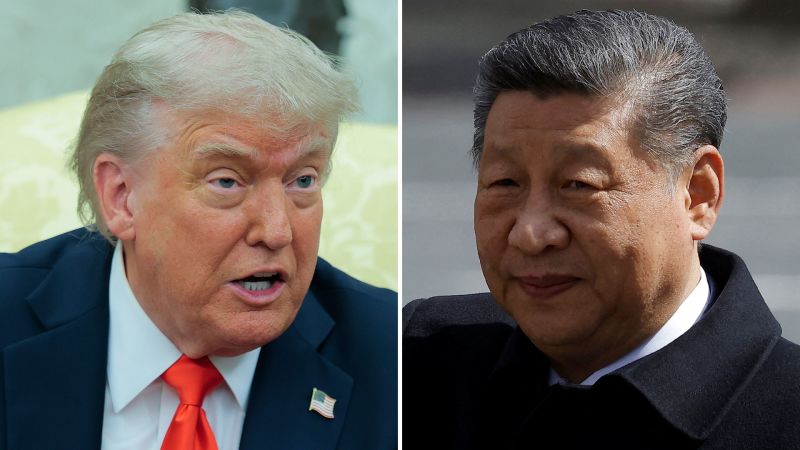On a notable Friday, President Donald Trump made a public announcement regarding an upcoming meeting set to take place on Monday in London. This meeting will involve representatives from both the United States and China, with a primary focus on discussing trade between the two nations—a topic that has seen its fair share of ups and downs in recent years.
In his announcement, Trump shared on Truth Social that the meeting would feature esteemed American officials including Secretary of the Treasury Scott Bessent, Secretary of Commerce Howard Lutnick, and United States Trade Representative Ambassador Jamieson Greer. Their presence underscores the importance of the ongoing discussions regarding trade relations, especially in the context of the intricate dynamics that have characterized US-China trade relations over the past few years.
The announcement came on the heels of a significant phone conversation between Trump and his Chinese counterpart, President Xi Jinping, which lasted an impressive 90 minutes. Following this dialogue, Trump expressed optimism about potential resolutions to the trade tensions that have plagued both countries. The feeling of encouragement was palpable, although the upcoming meeting in London would ultimately determine whether this optimism could translate into actionable agreements.
The Chinese delegation, led by Vice Premier He Lifeng, is set to represent China in these talks. This meeting represents a crucial point for both sides, especially considering the last significant round of negotiations held on May 12 in Geneva. During those discussions, which marked a pivotal moment in the ongoing trade war, both nations committed to rolling back a significant portion of the historically high tariffs that had been exchanged in the past. This announcement positively impacted global markets, boosting Wall Street’s confidence and prompting a hopeful outlook from American consumers.
However, the road to the London meeting has not been devoid of tension. Just a month before the Geneva talks, market interactions between the two countries had almost come to a standstill, largely due to the imposition of 145% tariffs on a broad range of Chinese imports. Such escalations had made it increasingly challenging for American businesses to maintain trade relationships with China, which has long been recognized as America’s second-largest trading partner.
In the weeks leading to the London meeting, tensions had once again begun to escalate. Trump voiced his frustrations, remarking on Truth Social that Xi was “extremely hard to make a deal with,” suggesting that frustrations in negotiations had reached a boiling point. A series of tweets by Trump indicated his belief that China had “TOTALLY VIOLATED ITS AGREEMENT WITH US,” a view that illustrates the complexities of the negotiation process and the challenges both leaders face in reaching a mutual understanding.
The Trump administration previously anticipated that China would lift restrictions on rare earth materials—vital components for electronics. Yet, the lack of progress in this area has contributed to frustration within the administration, leading to new measures targeting China and their technology sector. Tensions flared as the White House specifically warned US companies against utilizing AI chips produced by China’s leading tech giant, Huawei, and imposed restrictions on the export of semiconductor design software to China.
Additionally, the diplomatic rhetoric continued to intensify, with the Chinese Commerce Ministry accusing the United States of unilaterally provoking new economic and trade conflicts, further complicating relations. Despite these escalating issues, Bessent noted that efforts to reach a peaceful resolution were underway, although the stalled talks left many uncertain about the future direction.
The day of the phone call between Trump and Xi arguably saw a slight thaw in relations, with reports indicating that China had issued some permits for rare earths, indicating a minor softening of hostility even if a full return to normalcy had not yet been achieved. The upcoming talks in the UK are seen as pivotal, not only for trade relations but also for the broader stability of US economic growth, which remains steady yet shows signs of vulnerability.
Market reactions to Trump’s announcement have been positive, reinforcing the impression that successful negotiations are critical for both the US economy and global markets as a whole. The optimism surrounding this meeting is palpable, as the outcome could prevent a return to the economic standoff experienced in April, which had potential ramifications for an already fragile global economy. With stock indices rising following the announcement, there’s a clear indication that investors are hopeful for a resolution that will foster economic stability.



